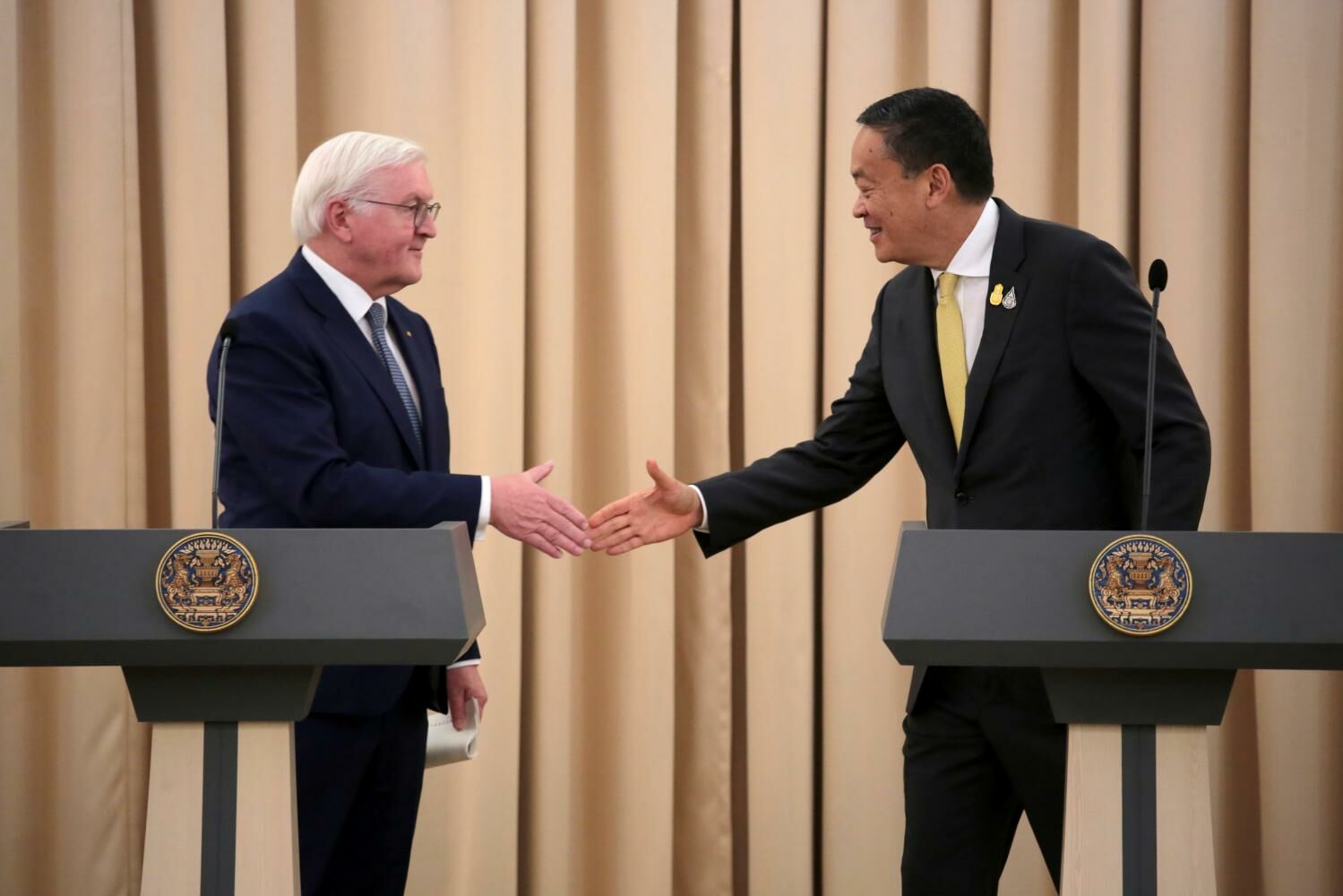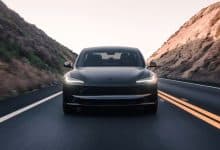Germany backs Thailand’s pursuit of becoming regional EV hub

Germany pledged to increase its stake in the electric vehicle (EV) sector in Thailand, paving the way for the nation to emerge as a regional EV hub, according to Prime Minister Srettha Thavisin. This announcement was made during a press briefing on Thursday, following a discussion with Frank-Walter Steinmeier, President of Germany, who is on a three-day official visit to Thailand, concluding on Friday.
PM Srettha highlighted that the meeting marked Steinmeier’s first visit to the country in 22 years and celebrated the 162 years of cordial relations between the two nations. Germany is currently Thailand’s most significant trading partner within the European Union (EU), while Thailand stands as Germany’s third-largest trading ally within ASEAN.
Both nations have set objectives to elevate their ties to a strategic alliance. The Thai prime minister stated that Germany has shown readiness to back Thailand in its pursuit of renewable energy, aiming to boost electricity production from renewable sources by 50% by 2040.
Furthermore, Germany has expressed its intent to broaden its investments in the Thai EV industry, aiding Thailand in its ambition to become a regional EV manufacturing hub. This commitment extends to supporting Thailand’s sustainable farming initiatives and contributing to the country’s efforts in combating the PM2.5 haze pollution.
The 61 year old prime minister’s talks also encompassed meetings with representatives of the German private sector who shared the trip with Steinmeier. These discussions explored Thailand’s economic potential and fresh investment opportunities.
The Prime Minister of Thailand revealed that he introduced the government’s policy to foster a circular economy to the German private sector and detailed the ease of foreign investments, human resource development, and the US$1 trillion Land Bridge megaproject designed to enhance Thailand’s rail and logistic system.
International expos
The German private sector demonstrated interest in managing international expos in Thailand and the recycling and production of plastic pellets from plastic waste. PM Srettha noted that the German business community communicated their specific investment requirements in Thailand, and the government will contemplate these to devise suitable response measures.
Among the topics discussed were strategies to encourage travel between the citizens of the two countries. Thailand remains a favoured destination for Germans, with over 700,000 visits last year. The country also provides a visa exemption scheme for Germans, allowing them to enter and stay in the kingdom for up to 30 days, reported Bangkok Post.
The Thai PM has called on Germany to support Thailand’s efforts to finalise the Free Trade Agreement (FTA) with the European Union, which will enable Thai tourists to obtain a Schengen visa to journey to other Schengen member nations.
He expressed optimism that Steinmeier’s visit would herald a fresh phase of exchanges and collaboration between Thailand and Germany, resulting in enhanced cooperation and mutual benefits, particularly in sectors like electric vehicles, clean energy, the circular economy, and others.
In March, the Bangk0k-born Thai PM is scheduled for an official visit to Germany to monitor the progress of bilateral cooperation that will lead to the establishment of a strategic partnership between the two countries.
During his state visit, Steinmeier and his delegation are slated to observe the operations of Thailand’s potential industries, including an automobile and EV manufacturing plant, a hydro-floating solar hybrid power plant, and an inclusive, sustainable rice landscape project. He will also tour renowned tourist attractions, including the Pha Taem National Park and the Museum of Contemporary Art Bangkok.
Steinmeier’s visit marks his first to Thailand since assuming office in 2017 and the inaugural visit by a foreign head of state under the current Thai administration. The previous visit by a German president to Thailand was by Johannes Rau in 2002.
In related news, Thailand witnessed a notable surge in electric vehicle (EV) imports as part of the EV3.5 plan (2024-27). The initiative aims to bolster domestic production through subsidies and incentives. Read more about the substantial increase in EV imports in Thailand.
Latest Thailand News
Follow The Thaiger on Google News:


























